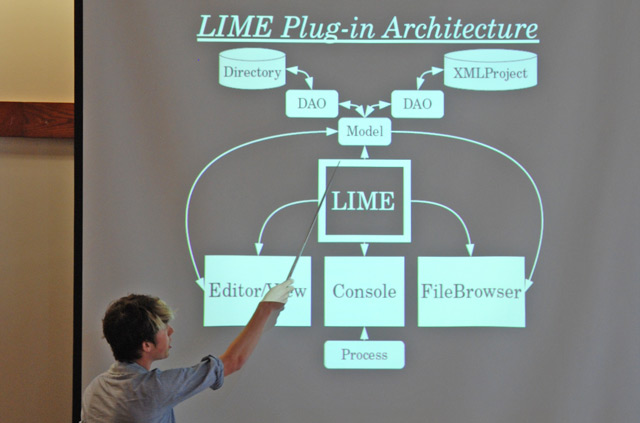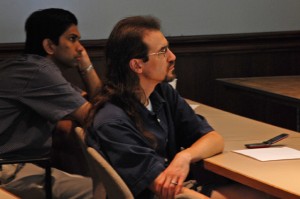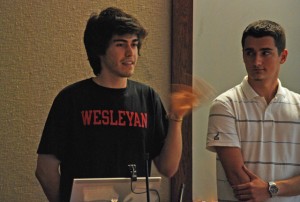Open-Source Software Group Designs Humanitarian Projects

This summer, 26 students representing six colleges and universities in the Northeast participated in the
Humanitarian Free and Open-Source Software (HFOSS) Project 2011 Summer Institute, hosted by Wesleyan.
Wesleyan is part of a growing community involved in The Humanitarian FOSS Project, dedicated to building and using free and open source software to benefit humanity.

Students from Wesleyan, Connecticut College, Trinity, St. John’s College, Mt. Holyoke College, and Rensselaer Polytechnic Institute participated in the summer institute and designed 11 projects for HFOSS. They presented their research July 22 in Woodhead Lounge.
Diego Calderon ’13, Jeremy Fehr ’13 and Trinity student Vlad Burca worked on a project called “Tor Status,” a support application for the Tor network, a tool that allows for anonymous web access. Tor Status allows users to see general information about the entire network at a glance, as well as get detailed information on any specific server in the network.
Brian Gapinski ’14 and Gabriel Elkind ’14 worked on a project titled “Landis/LIME.” Landis is forest ecology simulation software developed and used by academic researchers, the U.S. Forest Service, land-user managers and others. LIME is a graphical front-end to Landis, making it much easier to use for individuals who might be less comfortable with programming tasks.

Calderon, Gehr, Burca, Gapinski and Elkind also worked on a content management system-based “HFOSS@Wesleyan” web site. Norman Danner, associate professor of computer science, is project advisor and director of the summer institute.
Wesleyan is a founding chapter of the HFOSS Project, along with Trinity College and Connecticut College. The HFOSS Project is funded by the National Science Foundation.
To view a list of former Wesleyan HFOSS projects, click here.

